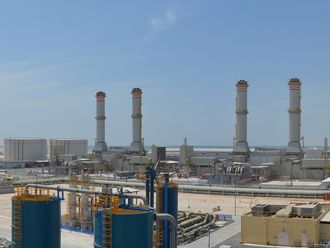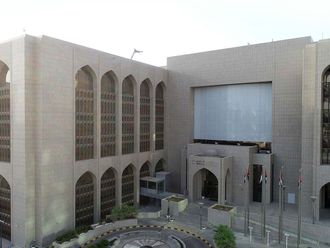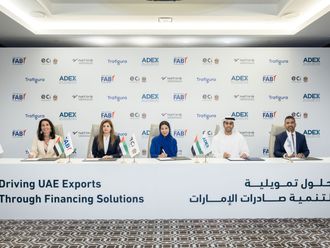Tehran: NITC of Iran will become the world's third-biggest oil-tanker company by 2013 when it takes delivery of 22 very large crude carriers, or VLCCs, and expands the number of ships in its fleet by 72 per cent, an executive said.
NITC, formerly known as National Iranian Tanker Co., is not hindered by economic sanctions on Iran, Area Manager Captain R. Ghareh told reporters yesterday in Sharjah.
The company continues to carry crude produced by Royal Dutch Shell and Total SA, in addition to oil from Saudi Aramco and state-run producers in Kuwait and Abu Dhabi. "We have not faced any problem," Ghareh said.
The Iranian operator expects by 2013 to have 74 ships of all sizes, including VLCCs and smaller vessels, he said. NITC will operate 50 VLCCs at that time, up from 28 today. It now ranks as the fifth-largest tanker operator worldwide, with a total of 43 ships. The United Nations, the US and the European Union have imposed sanctions on Iran because of that country's nuclear programme.
The US and its allies suspect that Iran seeks a capability to build atomic weapons, while Iran says it wants nuclear technology solely for civilian purposes such as electricity generation.
Ghareh said NITC is not using its vessels to store oil in the hope of profiting from a further increase in prices. "We are a transport company," he said. "We don't do trading."
Contracts
Brent crude contracts for March settlement rose $1.02 to finish trading at $97.60 (Dh358.19) a barrel in London on Friday. 21. US crude for March delivery ended the day at $89.11 a barrel in New York, where futures are up 17 per cent from a year ago. Iran has the world's fourth-biggest oil reserves.
NITC plans to buy liquefied natural gas carriers when Iran starts producing LNG, Ghareh said, without specifying when this would happen. Iran has the world's second-biggest gas reserves after Russia, according to data from BP.
NITC would eventually need to order 83 LNG tankers, based on Iran's production plans for the fuel. Iran doesn't yet produce LNG, which is gas chilled into liquid form for easy transportation by ship.
Like many other shipping lines in the Middle East, NITC has suffered from piracy, with its tankers coming under attack 16 times so far, the company's Technical Manager Anwar Lodhi said.












